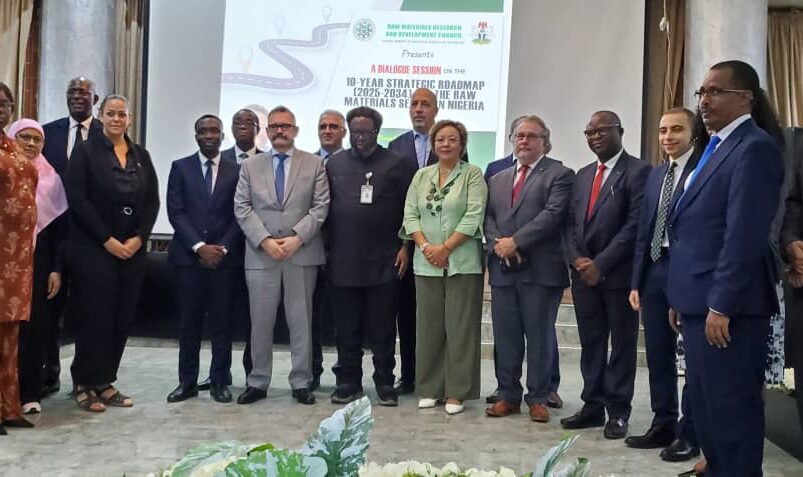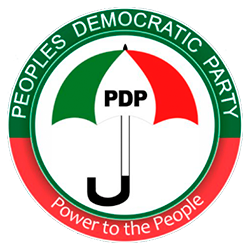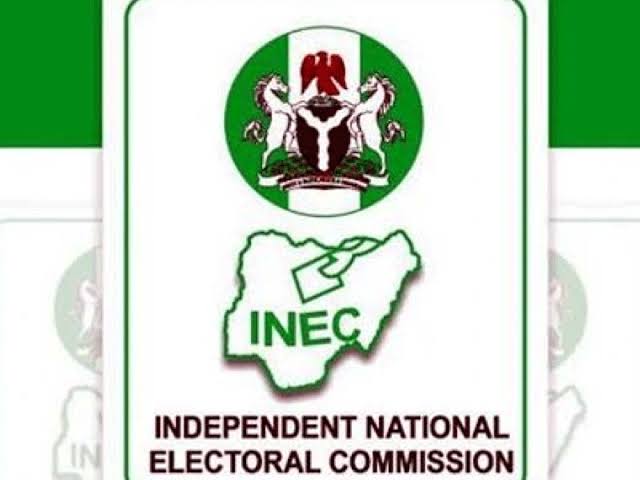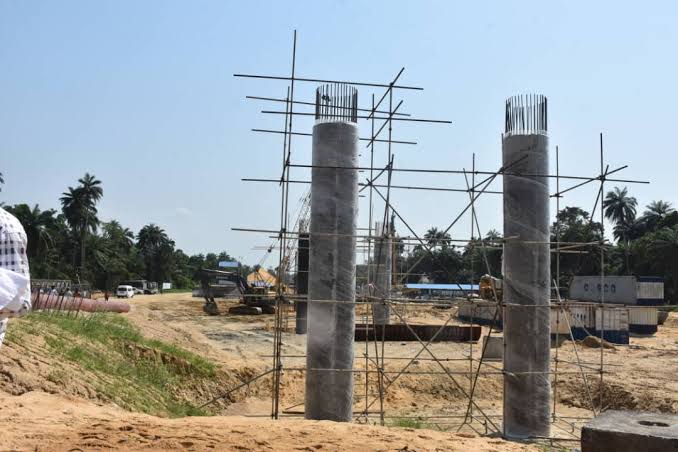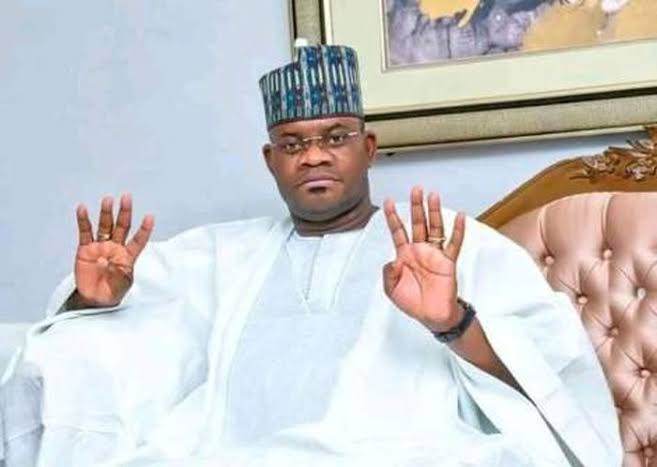By: Goodluck E. Adubazi, Abuja.
The Raw Materials Research and Development Council (RMRDC) on Tuesday hosted top diplomats, development partners, and representatives of the African Development Bank in Abuja for a high-level dialogue on its newly launched 10-Year Strategic Roadmap (2025–2034), aimed at repositioning Nigeria’s raw materials sector for global competitiveness.
Held at the Council’s Events Centre, the dialogue brought together stakeholders from across the diplomatic community to explore opportunities for collaboration in technology transfer, investment, research, data development, and sustainable industrial growth.
Roadmap Targets 30% Value Addition, Import Reduction
According to Dr. Oluremi, Deputy Director, Local and International Collaboration Division, the dialogue “reflects the growing international interest in Nigeria’s industrial future.”
In an overview presentation, Dr. K. B. Ajoku explained that the roadmap is designed to address long-standing bottlenecks in Nigeria’s raw materials ecosystem, including weak value chains, inadequate infrastructure, and policy inconsistencies.
He emphasised that the strategy aims to achieve at least 30 percent value addition to raw materials before export by 2034 — a shift expected to boost GDP growth and reduce dependence on imported industrial inputs.
Ajoku stressed that Nigeria must depart from the long-standing practice of exporting unprocessed raw materials and instead adopt a value-driven, innovation-led approach aligned with global sustainability standards.
Diplomats Raise Concerns on Trade Barriers and Research Agreements
During the interactive session, diplomats raised critical concerns affecting continental trade and international research partnerships.
A representative of the Liberian Embassy lamented Africa’s fragmented standards regime, which, he said, depresses export prices and restricts market access. Responding, Ajoku highlighted ongoing ECOWAS-wide harmonisation efforts and noted that a regional certification mark, now recognised under the AfCFTA, is already easing cross-border trade.
Another major discussion came from the Indonesian Embassy, whose representative revealed that a bilateral biodiversity research agreement between Nigeria and Indonesia collapsed due to disagreements over language, governing law, and intellectual property rights.
Ajoku clarified that while RMRDC was not directly involved in the agreement, international treaties typically adopt English as the primary language for clarity. He noted that research outputs could have commercial value, making clearly defined intellectual property terms essential. He recommended deeper diplomatic engagement, technical consultations, and a balanced “win-win” framework.
However, the Indonesian diplomat insisted that the country’s constitution requires bilateral agreements signed within Indonesia to be drafted in both English and Indonesian.
The session concluded with a consensus that both nations must reconcile national laws with global best practices to advance research partnerships.
Partners Stand to Benefit From Four Pillars of the Roadmap
Mr. Emma Evbodoghe outlined the benefits available to diplomatic partners through the roadmap’s four thematic pillars:
An integrated raw materials databank, Value addition programmes, Capacity building, International collaborations
He proposed joint research centres, innovation hubs, open-data systems, technology partnerships, and quarterly stakeholder forums as key avenues through which international partners can engage with Nigeria’s industrial transformation agenda.
Call for Stronger Partnerships and Implementation Commitment.
Earlier, in her welcome address, the Director of the Planning, Policy and Development Department described the roadmap as a transformative shift towards sustainability, innovation, and global competitiveness. She called for stronger partnerships to build robust data systems, enhance local content, and attract foreign investment.
In his opening remarks, the Director-General/CEO of RMRDC reiterated the Council’s commitment to working with the diplomatic community to unlock Nigeria’s raw materials wealth and drive inclusive prosperity.
In her closing remarks, Dr. Oluremi expressed gratitude to all diplomatic missions and partners for their engagement. She affirmed that the Council would share all presentations and continue to interface with stakeholders to build actionable partnerships.
The dialogue, she said, reflects the growing international interest in Nigeria’s industrial future and reinforces the Council’s resolve to implement the roadmap collaboratively for national development.






